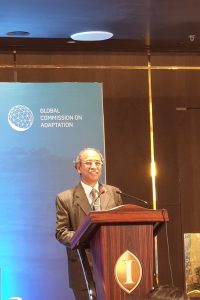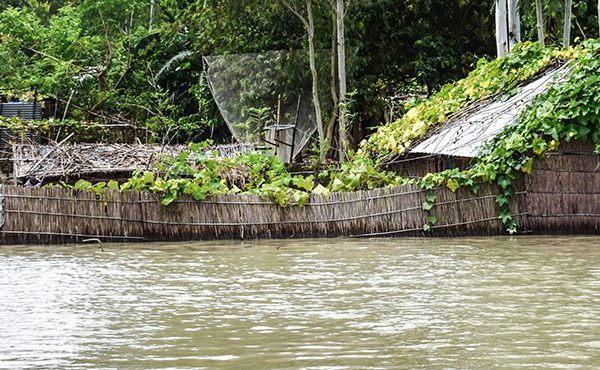BRAC at the Dhaka meeting of Global Commission on Adaptation
Reading Time: 3 minutes
The two-day international conference on climate change adaptation concluded today (11 July, Thursday) in Dhaka. The Global Commission on Adaptation which was launched in 2018 organised the conference in Dhaka on invitation from the Government of Bangladesh.
Bangladesh is one of the 17 convening countries for the Commission. The Dhaka meeting concluded with a number of recommendations to accelerate adaptation which will be placed at the UN Climate Summit in September this year. Dr Muhammad Musa, executive director of BRAC International and one of the commissioners elected by former UN secretary general Ban Ki-moon, reflects on BRAC’s learnings and experiences from its work with vulnerable communities in 11 countries in Asia and Africa.
—
10 July 2019, Dhaka – “I feel honoured to welcome the distinguished participants as one of the commissioners of Global Commission on Adaptation and a development worker from Bangladesh. I am glad that this meeting is taking place in Bangladesh – there could not have been any better venue for this discussion. Let me explain why.
Bangladesh is one of the most climate affected countries facing increased frequency and severity of natural calamities, reduced macro-economic growth and food security, and increased disease burden. IPCC predicts that around 50 million people are at risk of losing their homes due to the rise in sea level.

Bangladesh is also one of the most proactive countries in adapting conducive policies and taking necessary actions. A host of public policies informed by the global discourse are in place.
The first-ever locally resourced Climate Change Trust Fund is put to use to battle climate change. The country is home to climate-smart interventions that are directly contributing to higher growth. After all, green options are often more profitable options too.
Hundreds of non-governmental agencies such as BRAC is also supporting a wide variety of local actions to make communities resilient to the effects of climate change. Dozens of research organisations and think tanks such as International Centre for Climate Change and Development, the Bangladesh Centre for Advanced Studies, Centre for Climate Change and Environmental Research, to name a few, are leading the development of know-how.
My organisation, BRAC is at the forefront of large-scale adaptation mainstreaming led by local communities and partner organisations. A wide range of interventions like the introduction of saline resistant, high-yield crop variety, early warning systems at the firm level, climate-resilient livelihoods are but a few BRAC interventions that are making climate adaptation easier for vulnerable communities. During 2016-2018, our services reached 335,990 households in 41 districts of Bangladesh. All our programmes at BRAC implemented in the most vulnerable communities have climate adaptation as one of the central focuses.
This year, we started the country’s first privately-run Climate Change Trust Fund in partnership with KfW to support climate adaptation in urban areas.
We are now poised to take our successful large-scale adaptation interventions in 10 other countries in Asia and Africa where we work. Dr Saleemul Haq, who is one of the co-authors of the Adaptation report, has joined BRAC to help accomplish this goal.
Based on BRAC’s experience let me highlight three issues to promote large-scale climate adaptation for your consideration.

First, it is critical to translate the very important work of the commission at the grassroot level. Adaptation solutions for people are much less effective than a solution with the people. Trusted hand-holding and micro-level adaptation services are needed for uptake of new technologies. This is where NGOs flourish. However, the path to support these critical actors are convoluted and often outright prohibitively difficult. The global community needs to take urgent action in this regard.
Second, the countries which are standing to lose the most have a large number of young people. We should listen to them and support their participation in climate discussions. Similarly, women and girls who are most vulnerable need special attention. We need to support these groups collectively with scientific and programmatic actions.
Third, the role of the private sector as funder and implementer of climate-adaptive solutions cannot be overstated. The government-NGO-private sector nexus is critically needed to scale up climate adaptation that is sustainable and based on mutual wins.
Finally, I am incredibly happy that the Government of Bangladesh has taken the initiative to host this meeting. The Bangladeshi experience offers valuable lessons for all of us involved in climate adaptation. I hope that in the next two days of the conference, we will ground many of our discussion on the lessons we have to offer from Bangladesh, which is critically needed for the effectiveness of global adaptation discussion.”





